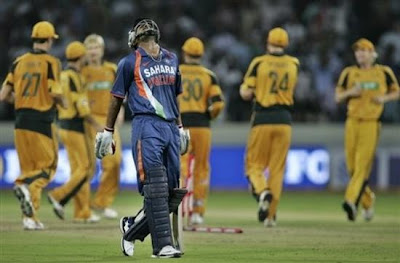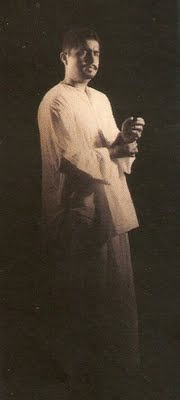"What is this world? Thy school, O misery!
Our only lesson is to learn to suffer."
- Young
We all have gone through it. If not yet, we shall go through it. It is the pain of separation. Like when parents can't stand the sight of each other, like when two best friends can't get along and have to break up, like the love dwindling down in a long standing relationship, like having to shift from a cherished workspace or many more instances of such. They do occur around us everyday. Maybe moments of pain like these were what inspired Mary Robinson to pen her much acclaimed poem 'Life', in which she ponders -
.....
What are all thy boasted treasures,
Tender sorrows, transient pleasures?
Anxious hopes, and jealous fears,
Laughing hours and mourning years.
.....
What of tedious life remains?
Keen regrets and cureless pains;
.....
The unavoidable break ups in relationships, owing to realization, ego clashes, change of priorities, idealism, lack of flexibility, too much of practicality, possessiveness... What not! Though there still exists mutual respect and love, circumstances force us to quit deep rooted intimacies at times. The turmoil we face during those moments can only be felt rather than described. Sahir Ludhianvi's immortal poem "Chalo ek baar phir se ajnabi ban jaaye hum donon" echoes those emotions in the most eloquent way.
Chalo ek baar phir se, ajnabi ban jaayen hum donon.
Naa main tum-se koi ummeed rakkhoon dil-nawazi ki,
Naa tum meri taraf dekho galat-andaaz nazaron se,
Naa mere dil ki dhadkan ladkhadaye meri baaton mein,
Naa zaahir ho tumhari kash-ma-kash ka raaz nazaron se.
Chalo ek baar phir se, ajnabi ban jaayen hum donon.
Tumhe bhi koi uljhan rokati hai, pesh-kadami se,
Mujhe bhi log kehte hain, ki yeh jalwe paraye hain
Mere humraah bhi ruswaaiyan hain mere maazi ki
Tumhare saath bhi guzari hui raaton ke saayen hain.
Chalo ek baar phir se, ajnabi ban jaayen hum donon.
Taarruf rog ho jaaye to usko bhoolna behtar,
Taaluq bojh ban jaaye to usko todna achcha.
Woh afsaana jise anjaam tak laana na ho mumqin
Use ek khoobsoorat mod dekar chhodna achcha.
Chalo ek baar phir se, ajnabi ban jaayen hum donon...
(An independent attempt of mine at translating it only on the literal front, because I believe it requires a genius of immense caliber to translate the emotional beauty and lyricism of Sahir Ludhianvi's poetry to English -
Come on, Let us be strangers once again.
Neither shall I expect any favours from you,
Nor shall you stare disapprovingly at me.
Neither shall my heartbeat tremble in my words,
Nor shall be revealed the secret of your conflicts in a sight.
Come on, Let us be strangers once again.
You too are obstructed from stepping ahead,
I too am told to be faking expressions.
My company is also kept by the disgraces of my past,
Haunting you too are the nights that have passed by.
Come on, Let us be strangers once again.
Better forget when acquaintance degrades,
Better break away when relationship burdens.
That adventure of affection which can't be brought to a destination
Is better abandoned at a beautiful turn en route.
Come on, Let us be strangers once again.)
While Ludhianvi's poem talks of walking out of any relation wound by acquaintance, Gibran's lines form 'The Broken Wings' expresses the pain of loss, when he talks of his love who lies dead in a tomb -
"Oh, comrades of my youth! I appeal to you in
the names of those virgins whom your hearts
have loved, to lay a wreath of flowers on the
forsaken tomb of my beloved, for the flowers you
lay on Selma's tomb are like falling drops of dew
from the eyes of dawn on the leaves of a
withering rose."
Learned men have practiced and preached to perceive the dualities of life with equanimity. But maybe for mortals like us equanimity evolves only after we undergo suffering. For suffering is supposed to be a purifying and perfecting process! Learning through experiences, maybe we too shall arrive at 'enjoying suffering'! Until then let the pain flow out and poets be born..
"Our sweetest songs are those which tell us of our saddest thoughts. - Shelly"
Twist in the tale: All emotions subside with time. As time transcends pain diminishes, but the poem is treasured. This is what keeps my unabashed love for poetry alive.
"Don't cry because it is over, smile because it happened!
- Gabriel Garcia Marquez" 




